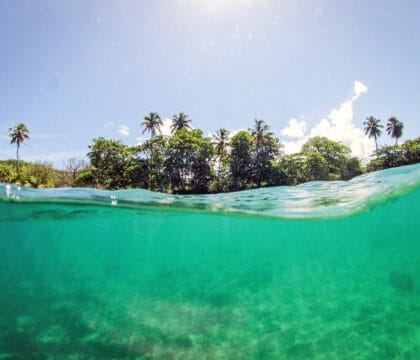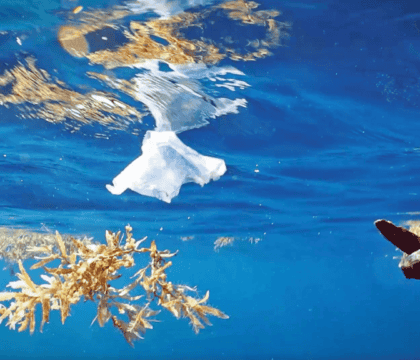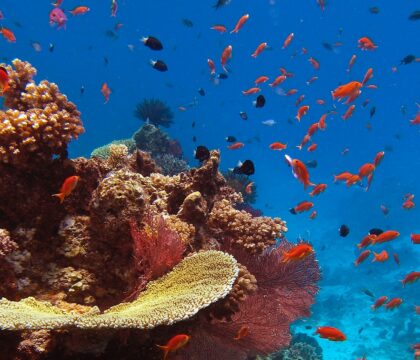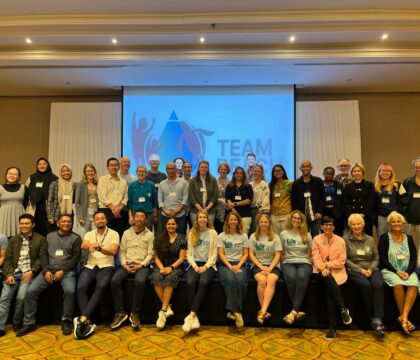September 18, 2020 • News Announcements, Program Updates
In the summer of 2019 Oceanic Society awarded its first Expedition Impact Fund (EIF) grant to Michael Mwang’ombe, the Marine Mammal Project coordinator for Watamu Marine Association (WMA), one of our expedition partners in Kenya. The EIF was launched in 2019 as a way for Oceanic Society’s travelers to contribute to our worldwide partners’ (whom we meet on trips) work to improve ocean health.
On the coastal portion of our Kenya “Twin Migrations Safari,” our participants get to visit with Mike and learn about the research he is coordinating. While there, we even get to go out with Mike to look for and photograph the migrating humpback whales along Kenya’s coast. Mike was recently featured as one of Kenya’s “Wildlife Warriors” in a video series that showcases important conservation efforts occurring in Africa.
Oceanic Society’s first EIF grant of $2,500 helped Mike participate in the 2019 Dolphin Health Assessment Training by the Sarasota Dolphin Research Program (SDRP), an annual two-week workshop organized by SDRP out of the Mote Marine Laboratory in Sarasota, FL. The workshop brings together dolphin experts and researchers who provide training seminars to marine mammal conservation workers and students from around the world.
One aspect of the training that Mike said was especially valuable to him was the opportunity to participate in the SDRP stranding program where he learned skills needed to assist stranded animals. Mike told us, “the knowledge gained will be an important tool that will help us in the process of forming our stranding network in Kenya, which previously did not exist due to lack of capacity.” He was also trained in standardized sea turtle and dolphin necropsy procedures, which should help make sure that when a dead animal is encountered, there will be a greater chance to learn from that unfortunate event.
This summer, as the humpback whales have been migrating through Watamu during the months of August and September, Mike has been out on the water regularly, conducting 26 photo ID trips. Mike and the WMA have also been busy training boat operators and Kenya Wildlife Service staff on dolphin watching guidelines and on the importance of contributing sighting data through WhatsApp. They have also been working with the leaders of the different fishing groups along Kenya’s north coast to help them learn how to identify different types of dolphins and about how fishermen can contribute sightings data as citizen scientists.
We continue to be thankful for all the important work that Mike oversees and accomplishes with the WMA, and we look forward to getting back out into the field with him on our next safari in 2021. We also thank our generous travelers who donated to the Expedition Impact Fund for taking action to directly contribute to these impactful and needed on-the-ground conservation efforts.




